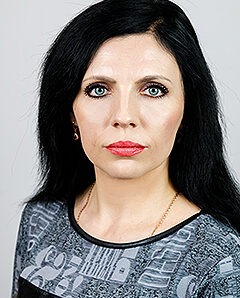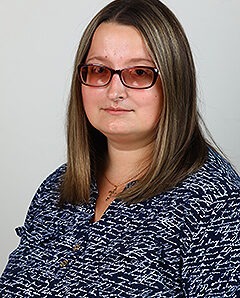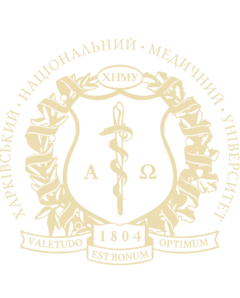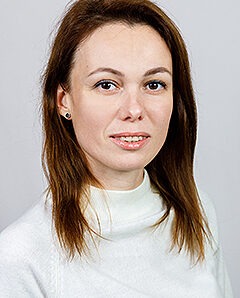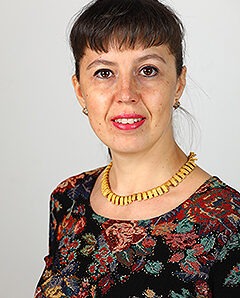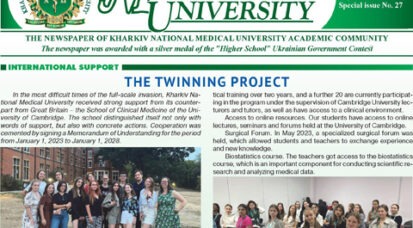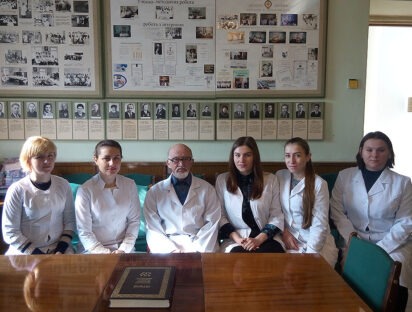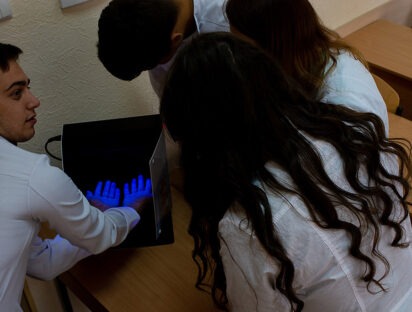About us
The Department of Epidemiology of Kharkiv National Medical University was founded in 1930. The main focuses of the Department are educational, scientific, methodical and advisory work.
The educational activity of the Department is to prepare students for various educational components (disciplines) of educational and professional programs “Medicine”, “Pediatrics”, “Dentistry”, “Nursing” and “Public Health”. As part of postgraduate education, training is provided for medical interns, as well as for physicians undergoing internships and specialization in the field of Epidemiology, thematic professional development courses, and activities for Continuous Professional Development.
The main directions of the department’s research activities include the improvement and scientific substantiation of the system of epidemiological surveillance of infectious diseases using innovative methods, including epidemic process modeling, information technologies, and artificial intelligence; ensuring national biosafety through the development and scientific justification of rational and effective preventive and anti-epidemic measures; development of modern technologies for infection control and prevention of healthcare-associated infections, as well as strategies to contain microbial resistance to antimicrobial agents; analysis of the impact of war and its consequences on the epidemic process of prevalent infections based on information technologies, including artificial intelligence methods. A separate area of research focuses on the study of the epidemiology and prevention of non-communicable diseases.
Scientific and educational activity is closely connected with methodical work – preparation of monographs, manuals, methodical recommendations on epidemiology, actual problems of epidemiological surveillance and maintenance of epidemic well-being of the population. Currently, the Department of Epidemiology is conducting an initiative-based research project, and its staff are also participating in a competitive research project funded from the state budget through the National Research Foundation of Ukraine.
The Department takes an active part in international research projects and associations, implements international grants and opportunities for academic mobility, etc.

- History of the department
- Department today
- Educational process
- Scientific work
- International Activity
- Postgraduate education
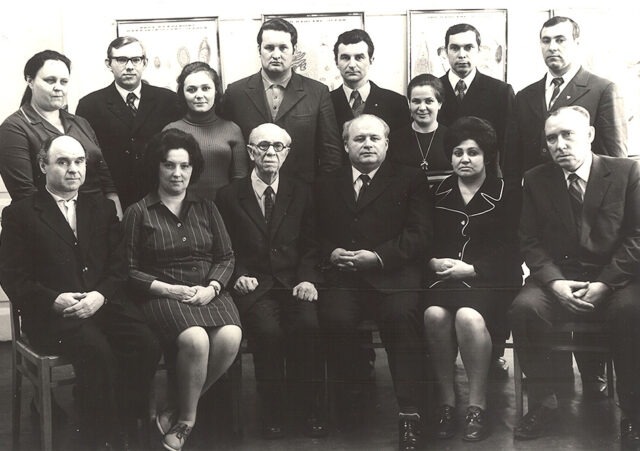
The Department of Epidemiology of KhNMU is one of the oldest not only in Ukraine but also in the world. It was founded in 1930 by Mikhail Nikolaevich Solovyov, a student of the founder of the national scientific epidemiology, Academician Danylo Kirillovych Zabolotny. World-renowned scientist, member of the USSR Academy of Medical Sciences, Honored Scientist of the USSR, Academician MM Solovyov headed the department from 1930 to 1969. In 1933, M.M. Solovyov published a textbook in Ukrainian on the course “Epidemiology”, and in 1936 – a manual for physicians and students “General Epidemiology”. These textbooks became the first printed publications in Ukraine in this area.
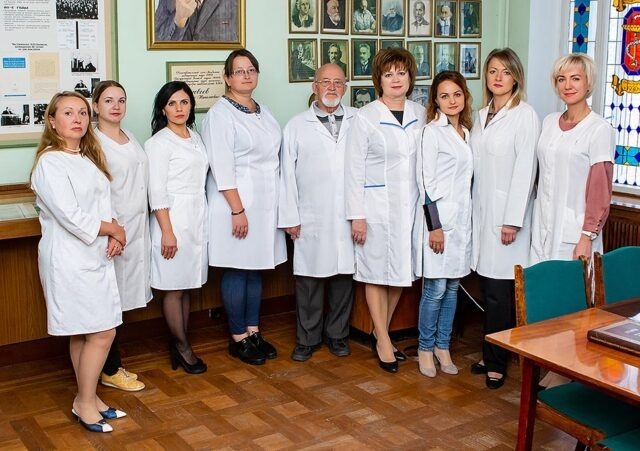
Today, the Department is one of the leading scientific institutions on epidemiological surveillance of infectious diseases, a training center for health care institutions in Ukraine. The Department has a scientific authority in the international medical community, is constantly evolving, responds quickly to the challenges and biological threats in the modern world, drawing attention to the priority of preventive medicine.
Material and technical support of the Department allows to apply modern pedagogical technologies in the educational process. The Department has a museum of the history of the Department and a scientific library, which are used in teaching and educational work. The Department has a scientific section of the Students Scientific Society of Kharkiv National Medical University.
During the period of its existence, the Department has trained 15 doctors and 65 candidates of medical sciences, 1 Doctor of Philosophy, Currently, the department staff is working on three dissertations for the degree of Doctor of Philosophy.
The Department systematically holds scientific and practical conferences, and the bank of methodical recommendations and textbooks is constantly updated. Scientific achievements are summarized in the monographs of employees.
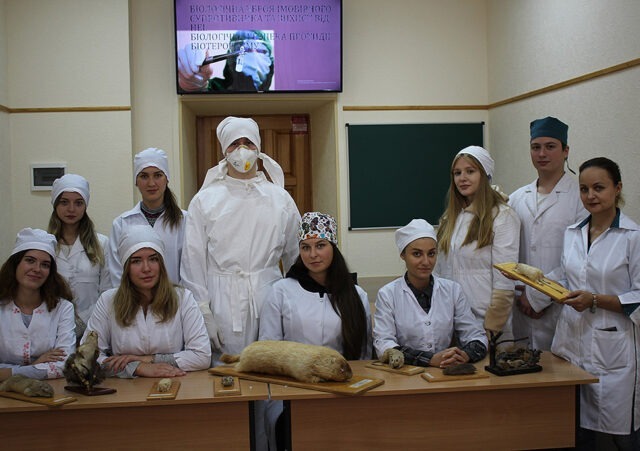
The department trains Students for Educational and Professional Programs (EPP) “Medicine”, “Pediatrics”, “Dentistry”, “Nursing” and “Public Health” in the Following Educational Components (disciplines):
- for students of higher education at the second (master’s) level of the 5th and 6th years of the I, II, III medical faculties in the specialties “Medicine” and “Pediatrics” as the main educational components are “Epidemiology and Principles of Evidence-Based Medicine” and “Military Epidemiology”, selective educational components are “Modern Immunoprophylaxis Technologies”, “Epidemiological Studies and Evidence-Based Medicine in Clinical Practice”, and “Infection Prevention and Infection Control in Medical Practice” – full-time education;
- for students of higher education at the second (master’s) level of the 4th year in the specialty “Dentistry” with the main educational component being “Epidemiology”, selective educational components are “Epidemiological Studies and Biostatistics for Dentists”, “Disinfection and Sterilization: Safety Standards in Dentistry”, “Infection Prevention and Infection Control in Dental Practice”, “Aerosol-Transmitted Infections: Principles of Prevention in Dental Practice” – full-time education;
- for students of higher education at the first (bachelor) level in the specialty “Nursing”, the main educational components are “Epidemiology”, “Infection Prevention and Infection Control in Nursing Practice”, “Vaccination and Immunoprophylaxis in Nursing Practice”, selective educational components are “Specifics of Medical Device Reprocessing in Healthcare Facilities”, “Medical Waste Management in Healthcare Facilities”, “Biological Weapons and Bioterrorism: Means of Protection and Prevention” – full-time and part-time forms of education;
- for students of higher education at the second (master’s) level in the specialty “Nursing”, the main educational component is “Epidemiology. Principles of Prevention in Nursing”, selective educational components are “Biological Safety and Biological Defense in Wartime and Peacetime”, “Vaccination in Practice”, “Infection Safety in Healthcare Facilities”, “Evidence-Based Medicine and Standardization of Nursing Practice” – part-time form of education;
- for applicants of the second higher education at the master’s level in the specialty «Public Health», the main educational components are “Epidemiological Surveillance and Assessment of the State of Health and Well-Being of the Population”, “Current Issues of Epidemic Diseases and Public Health Response Measures”, selective educational components are “Biological Safety and Biological Defense in Wartime and Peacetime”, “Immunoprophylaxis as a Component of Public Health”, “Molecular Epidemiology. Parasitology” – part-time form of education.
Currently, the Department is actively using Distance Technologies in the educational process, Creating its own Distance Courses in Disciplines from educational components.
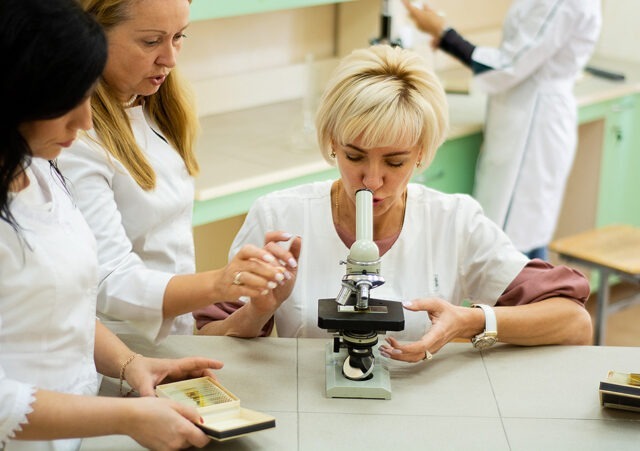
The main directions of research work of the Department are improvement and scientific substantiation of the system of epidemiological surveillance of infectious diseases, applying new methods, including methods of modeling of epidemic processes and information technologies; ensuring the country’s biosafety through the development and scientific substantiation of rational and effective preventive and anti-epidemic measures; development of modern technologies for infection control and prevention of infections associated with the provision of medical care, and ways to curb the resistance of microorganisms to antimicrobial drugs; creation of a system of epidemiological -epizootic surveillance of infections common to humans and animals, in the context of the “One Health” strategy, carrying out preventive and anti-epidemic measures under COVID-19.
Over 300 articles and abstracts have been published in the last 5 years including in journals of the 1st and 2nd quartiles of the scientometric databases Scopus and Web-of-Science. Three informational letters and three monographs have been published; two patents and 24 certificates of copyright registration have been obtained.
The Department of Epidemiology cooperates fruitfully:
- with higher educational institutions and research institutes – departments of Kharkiv National Medical University and Educational and Scientific Medical Center “University Clinic” of KhNMU; National Medical University. O.O. Bogomolets (NMU); VN Karazin Kharkiv National University; Municipal non-profit enterprise of the Kharkiv regional council “Regional medical clinical center of urology and nephrology named after VI Shapovala”; SI “Institute of General and Emergency Surgery. VT Zaitsev National Academy of Medical Sciences of Ukraine “; SI “Institute of Microbiology and Immunology. І.І. Mechnikov National Academy of Medical Sciences of Ukraine; National Aerospace University “Kharkiv Aviation Institute”; NSC “Institute of Experimental and Clinical Veterinary Medicine”; State Institution “National Institute of Therapy named after Malaya NAMS of Ukraine”, State Institution “P.V. Voloshyn Institute of Neurology, Psychiatry and Narcology of the National Academy of Medical Sciences of Ukraine”, etc .;
- with institutions of practical health care – the Center of Public Health of the Ministry of Health of Ukraine; MNPE “City Hospital No. 1” of the Kharkiv City Council, MNPE “City Children’s Hospital No. 5” of the Kharkiv City Council, SI “Kharkiv Regional Center for Disease Control and Prevention of the MoH of Ukraine”, MNPE “Novovolynsk Central City Hospital”, MNPE of the Kharkiv Regional Council “Regional Clinical Traumatology Hospital”, MNPE of the Kharkiv Regional Council “Regional Children’s Clinical Hospital”, MNPE “City Clinical Hospital No. 30” of the Kharkiv City Council, MNPE of the Kamianske City Council “Primary Health Care Center No. 3”, MNPE of the Kamianske City Council “City Hospital No. 9”, MNPE of the Kharkiv Regional Council “Regional Clinical Hospital”, etc.
Department trains Doctors and Nurses of Health Care Settings in Theoretical Issues of the Epidemiology, Prevention and Epidemiological Surveillance of the most relevant Infectious Diseases and in Key Issues of Infection Control in Health Care Settings, such as Hand Hygiene of Medical Personnel, Management of Medical Waste, Vaccine Prophylaxis, etc.
The department actively develops international cooperation and collaborates fruitfully with leading scientific and educational institutions in Europe and the United States. Within the framework of joint projects, it engages in experience exchange, participation in conferences, and grant-based research. Collaboration with foreign experts contributes to the implementation of modern approaches in the field of epidemiology, the improvement of the educational process, and the enhancement of the quality of scientific research.
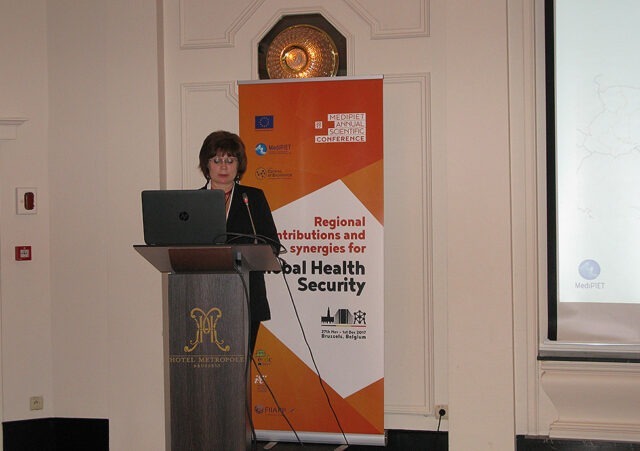
The department has been actively involved in joint international scientific projects within the framework of cooperation with the Baltic Antibiotic Resistance collaborative Network (BARN) (EniLab projects, Healthcare Improvement Work in Europe: implementing guidelines prevention – HIWE, etc.), European Joint Action on antimicrobial resistance and healthcare-associated infections (EU-JAMRAI) (Europe fostering synergies projects to keep antibiotics working, HCAI, The Optimal Strategy of the Prevention of CAUTI), CDC (Centers for Disease Сontrol and Prevention, USA) and DTRA (The Defense Threat Reduction Agency) on introduction of intervention epidemiology in Ukraine, the concept of “One Health”, etc. Head of the department prof. T.O. Chumachenko is involved as an expert in the implementation of the European Union Horizon 2020 scientific project “MOOD” (Monitoring Outbreaks for Disease surveillance in a data science context).
Department concluded agreements with Respublikines Vilniaus universitetines ligonines, Sfanta treime municipal clinacal hospital Chisanau, Walter Reed Army Institute of Research (WRAIR).
At present, within the framework of international scientific and technical cooperation, the department is implementing four projects:
- “Laboratory-based Monitoring and Genetic Characterization of Antimicrobial Resistant Bacteria in Ukraine” (grant project, co-executor: Walter Reed Army Institute of Research);
- “Modeling and Forecasting of Infection Spread in War and Post-War Settings Using Epidemiological, Behavioral, and Genomic Surveillance Data” (grant project, co-executors: Georgia State University (USA), University of Connecticut (USA), Lodz University of Technology (Poland), and the Kharkiv Regional Center for Disease Control and Prevention of the Ministry of Health of Ukraine);
- “Bridging the Gap Between Epi-Platform Providers and Users” (co-executors: 92 experts from 27 countries);
- “Modeling and Forecasting of Infection Spread in War and Post-War Conditions Using Epidemiological, Behavioral, and Genomic Surveillance Data” (co-executor: Georgia State University, USA).
In 2024, the department’s staff received 13 grants for education, research organization, participation in scientific events, and publication of scientific works in international peer-reviewed journals.
The results of scientific research of the Epidemiology Department were presented at numerous international scientific forums in the USA, Sweden, Austria, France, Italy, Belgium, Greece, Denmark, Finland, Turkey, Poland, the Republic of Lithuania, Georgia, Kazakhstan, Uzbekistan, Ukraine and others.
Head of the department prof. T.O. Chumachenko is a reviewer of scientific articles in leading scientific journals with a high impact factor of science-metric databases Scopus, Web of Science, such as “Globalization and Health”, “Frontiers in Public Health”, “Epidemioligia”, “Infectious Disease Reports” , “Medicina”, “Healthcare”, “Vaccines”, “International Journal of Environmental Research and Public Health” and others. In 2024 alone, she completed 75 manuscript reviews for scientific articles and 2 monograph reviews.
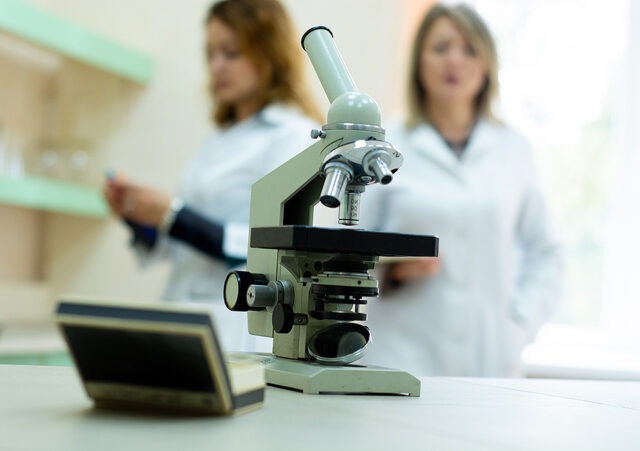
The department trains medical interns in the specialty “Epidemiology”. For medical interns specializing in Medical Diagnostic Technologies, the related course “Modern Aspects of the Epidemiology of Bacterial and Viral Infections” is offered. For medical interns specializing in Infectious Diseases, the related course “Epidemiology” is offered.
Three-month and five-month secondary specialization courses in the specialty “Epidemiology” are offered for physicians working in healthcare institutions, along with internship cycles in “Epidemiology” and thematic advanced training courses on current issues of modern epidemiology and public health.
The Department has developed the following thematic advanced training courses:
- “Biosafety and biosecurity in wartime and peacetime”
- “Epidemiological studies in clinical and preventive medicine. Basics of evidence-based medicine “
- “Epidemiology and prevention of healthcare-associated infections”
- “Hygienic and epidemiological aspects of foodborne infections and poisonings”
- “HIV infection and contact-transmitted hepatitis: epidemiological aspects and modern prevention technologies in medical practice”
- “Current issues of epidemiology and prevention of modern infections during wartime and post-war recovery”
- “Selected issues in the epidemiology of respiratory infections. COVID-19 – current challenges”
- “Rabies: modern prevention technologies, scientific and practical aspects, and strategies for providing anti-rabies care”
- “Epidemiology and prevention of infections of international concern”
Course topics are constantly updated in accordance with new challenges in the field of public health, achievements of epidemiological science and orders of practical health care institutions.
Head of the Department section of the Student Scientific Society of KhNMU – PhD, assistant of the Epidemiology Department Berezhna Antonina Valentynivna
Members of the Society are students of 4-6 courses of medical faculties of KhNMU
Format – meeting of the society in online format on the Google Teams / Meet platform, individual consultations with the faculty of the Department of Epidemiology
The main directions of the society:
- students’ research work in the field of epidemiology, generalization and presentation of research results at student scientific conferences and publication in scientific journals;
- participation of members of the society in extracurricular educational, cultural and sports events of KhNMU, in events organized by the student scientific society and other public organizations.
In 2024-2025 academic year, students who are members of the Student Scientific Society of the Department of Epidemiology participated in 12 Scientific and Practical Conferences in Ukraine and in 3 Scientific and Practical Conferences of other countries, the Results of the Students’ Scientific and Research Work were published in 21 abstracts and articles.


